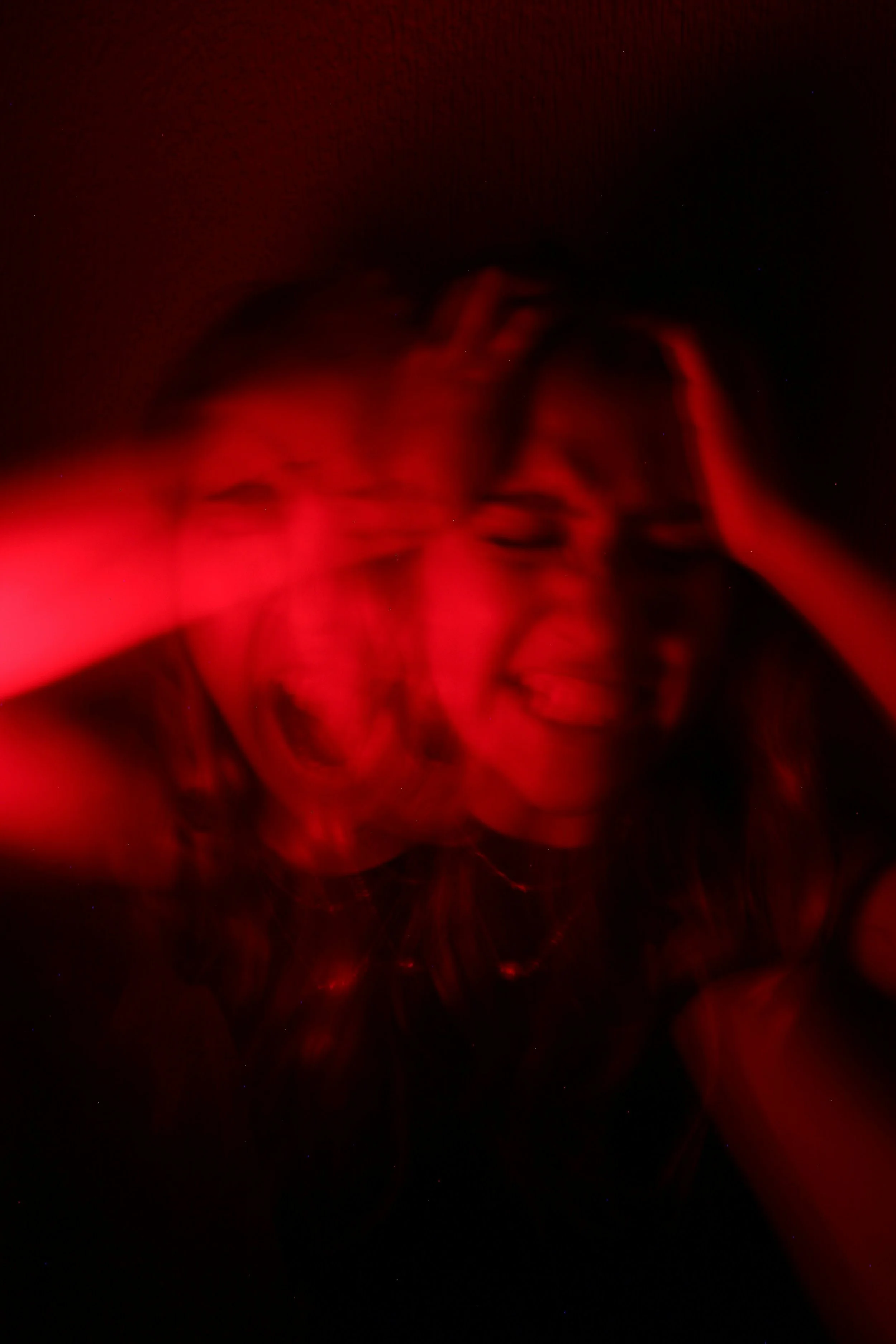What is religious trauma?
If having faith can be a beautiful things, a lot of people do not believe in god because they have seen evil from too close due to unhinged religious practises, manipulative teachings and weaponisation of sacred books, within their family or religious group.
Victim-blaming, shaming, scarcity mindset, brain washing, indoctrination disguised as fraternity, fear confused for faith, extreme procrastination inviting you to wait for ‘ a new world’ to start living a fearless life, -depending on your life experiences, it can be tempting to see religion and cult as a same entity.
This blog post discusses the pain and challenges of rigid belief systems and toxic community dynamics, particularly among Jehovah's Witnesses, and emphasises the transformative power of developing your own personal sense of spirituality as well as life coaching support as a means of healing.
Religion vs spirituality
What is religious trauma syndrome?
Marlene Winell was the first person to use the term Religious Trauma Syndrome to describe the wide array of emotional issues people face as they leave authoritarian religions; psychological harm including fear, anger, depression, loss of self, agency, and decision-making.
Religious trauma is the severe psychological burden that people suffer as a result of coercive or manipulative religious practices; This can take many forms, religious abuse of power by parents, elders or within a religious community- using guilt, shame, blackmail and threats- either because they are extremely devoted to the religion or because they use it as a tool for their personal image. Regardless of their motivation their intrusive ways into your personal life and rigid control have a deep impact on their victim psyche.
Can religious trauma cause OCD?
Fear-based teachings can lead to hyper-vigilance, masking/ suppressing your real self, anxiety, depression, OCD, PTSD and religious trauma nightmares where you are reliving intense emotions such as judgement and rejection.
From being afraid to leave the religion- or chronic stress after leaving (Post Traumatic Stress), fear of being punished for following your dreams, to feeling guilt socialising with other human not belonging to the religion; those behaviours are sign of religious trauma.
How does religious trauma happen?
In groups such as the Jehovah's Witnesses, the Intrusiveness of the organisation through studies, meeting, door-to door and more teaching instilling a sense of dependency to the group can cause profound self doubt in you own decision making skills and a disconnect from one's true self, and with the outside world. After month and years reorganising your life to fit into the mould of your religious group, a sense of alienation can emerge and remain after leaving the group: Once finally independent, it can be challenging to differentiate what is from god and what is from the devil, as damaged world views are ingrained and create a negative judgment based outlook on life experiences, even joyful ones. You also most likely only been taught to rely on the group validation, leading to feeling sinful and ungrateful when you dare taking leadership of your life.
What are the causes of religious trauma?
Oppressive family members, rules, elders and/or community can all play a part in religious trauma: The contrast between an individual's personal beliefs and the rigid doctrines imposed by their religion create a conflict. For Jehovah's Witnesses, questioning the validity of the teachings or expressing refusal to follow the lead of the organisation can lead to excommunication also ‘disfellowshipping’, isolating them further from their family and friends, often the only people they really got to socialise in close proximity with growing up. The insidious pressure and intense feelings of abandonment or loss of religious trauma triggers the feeling of being misunderstood and not fully integrate in society as an individual.
I remember when i was still living with my family, because of my sometimes strange socialising behaviours, people would wonder Jehovah witnesses accept gifts? Yes technically they can, however their religious beliefs social conditioning can make awkward depending on the occasion ( for example they will most likely refuse Christmas gifts and birthday presents ) and who gives it to them; If it comes from someone of the opposite sex, they are afraid that accepting a gift might mean accepting an uncovered sexual offer, potentially opening the door to flirts or temptations; Of course, it could mean that but this pathologic extreme way to look into everyday interactions to either suspect the devil hidden under or sexualising behaviours, is just not a healthy way to live life.
Outsiders frequently regard Jehovah's Witnesses as just another denomination, as they do many other religious groups. However, for many who have witnessed the realities of life within this organisation, it can feel more like a cult, with fear, control, social pressure and isolation being common tools used to keep members in line. Moreover, Jehovah witnesses, a branch a Christianity, are just like other groups have predators as part of its community, weaponising the sometimes naive faithfulness of the others religious members to abuse the most vulnerable; such encounters can also lead to religious trauma.
Is religious trauma real?
Absolutely. The pain is as real as any other type of trauma. For many, it includes the burden of religious abuse by parents or authority figures, which leaves permanent scars. These wounds can be exacerbated by the community's ostracism and the threat of ‘excommunication’ for abandoning the faith.
What constitutes religious abuse?
Religious abuse consists of manipulation, control, and punishment in the name of religion. It can take many forms, ranging from verbal and emotional abuse from family or elders at church/ congregation to severe cases of physical harm or forced isolation. Religious abuse in family is often disguised as discipline as the parents shame their children for not being the spitting image of their expectations. The obvious victim of religious abuse are often children , yet older people that are more vulnerable/ easy to manipulate after a traumatising experiences causing them to seek help in organisation sometimes misleading them can also be victim.
Religious Trauma and Sexuality
Strict doctrines and rigid moral codes can result in rejection of the people exploring their sexuality outside of the religion expectations; from dating outside of the community to intimacy before marriage.
Sexual expression is strictly controlled for many people raised in environments like Jehovah's Witnesses, with consequences for those who deviate from the norms; such as parental support removed from their children and being cut off emotionally and community rejection. This can result in long-term emotional scars, deep-seated guilt, shame- exacerbating further the disconnection and isolation.
Individuals who choose to date outside of their faith, engage in premarital sex, or identify as LGBTQ+ frequently face harsh criticism. Jehovah witnesses gay views are that it is a sin linked to Sodome & Gomore, a symbol of destruction and desobediance to god. For some gay people, the atmosphere after coming out to their family felt like a Jehovah witnesses funeral as Jehovah witnesses dating life is quite regulated.
Is religious abuse a crime?
Religious abuse is not considered a crime but certain behaviours related to religious abuse, such as physical violence, emotional or psychological abuse, coercion, or fraud, may be considered crimes depending on the jurisdiction and specific events.
How to report religious abuse?
If you have been abused, you must seek help and a religious support group can be a first step. Religious abuse, especially among children, is a serious problem that should be reported to authorities or support groups.
Contact Information for Religious Abuse Support:
Religious Abuse Hotline (US): National Domestic Violence Hotline (Religious Abuse Support) - 1-800-799-SAFE (7233)
Religious Abuse Support Group (UK): Faith to Faithless - Provides support for those leaving or questioning their faith.
Religious Abuse Support Group (France): Le Refuge - Supports young people facing rejection due to their sexual orientation or gender identity. Also la mivilude in France can be helpful if you are dealing with a cult or abusive religious group.
If you or someone you know is going through religious trauma, especially one related to sexuality, these resources can offer much-needed support and guidance. Alternatively you can google ‘religious trauma therapist near me’ to find someone to speak with. Remember that you deserve to live authentically and without fear.
Navigating Life After religious trauma
The path to recovery from religious trauma is highly personal and frequently complex. Healing from religious trauma entails not only leaving physically but also emotionally and mentally.
Leaving a religious group includes not only physical separation, but also a journey of deep psychological and emotional unlearning, healing, and rebuilding- after years of indoctrination, conditioning, fear, and guilt—it is a process requiring courage, support and appropriate guidance.
How Can A Life Coach Help?
A life coach having experiences growing in a dysfunctional family and leaving behind a religious organisation can help you recognise where limiting beliefs are holding you back to reframe your mindset, and rebuild a life free of conditioning: It can take years to fully realise how ingrained fears are in us but empathy, care and feeling accepted by people with similar life experience can help you shift into a version of yourself you don’t feel the need to hide and have the confidence to present to the world. We all go through challenging experiences and no matter how isolating struggle can feel, you are not alone.
Break Free from Limiting Beliefs: A life coach can assist you in identifying and dismantling the deeply ingrained beliefs that have been holding you back.
Regain Control of Your Mindset: After leaving a controlling religious environment, many people experience feelings of inadequacy and self-doubt. A life coach can help you regain confidence and control over your life.
Embrace Life's Energy Flow: This can be counter intuitive if you have been taught to doubt and be careful all of your life. After years of hiding your true self, a life coach can help you reconnect with who you are while being a compassionate ear. They can help you embrace your authenticity, reframe your thoughts and adopt a more empowered independant mindset.
With the right support, you can overcome the scars of religious abuse and begin to live a free and fulfilling life. If you are dealing with religious trauma triggers or want to know the difference between religion and spirituality, a life coach can provide you with the support and tools you need to reclaim your life, while still providing a spiritual outlook on life challenges.
At Koldenfruit, we believe in personal freedom and people ability to decide for themselves their relationship with the divine; If they want to follow the lead of a religion or prefer the individual pursuit of their spirituality. We provide personalised online life coaching and consultations to help you overcome the guilt and limiting beliefs that have been holding you back. If you've been through religious trauma, know that recovery is possible, and we're here to help you every step of the way.

















